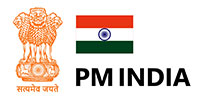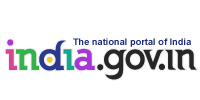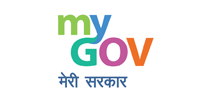CRP on Natural Fibres
Background
The Indian council of Agricultural Research (ICAR) has launched an ambitious research system in various fields of agriculture during 12th Five year plan, by introducing the ICAR Agri-Research Consortia Platforms (Agri-CRP) to fortify and encourage the innovative research approach to take up national problems that have been perceived over time. It is proposed as Plan-funded activity and shall be vested with National Agricultural Research System with consortia partnership with all organizations that have interest in partnering towards finding lasting solutions to identified agricultural issues of the country. CRP on Natural Fibre (CRP- NF) is one of the platform projects approved under Agri-CRP by ICAR. ICAR-Central Institute for Research on Cotton Technology, Mumbai has been entrusted as Nodal Centre for executing CRP-NF project due to its vast experience and significant achievements in the research on natural fibres.
The project was initiated during the year 2015-16 during 12th Five year plan and it was extended up to 2020 by the council vide letter number F.No. A.Engg./7/12/2017/IA-II(AE) dated 27.09.2017 under the scheme entitled “Fibre Processing and Value Addition” comprising CRP on Natural Fibres with a total outlay of Rs.211.83 Lakhs for three years (2017-2020).
CRP on Natural Fibre (CRP- NF) is one of the platform projects approved under Agri-CRP by ICAR. ICAR-Central Institute for Research on Cotton Technology, Mumbai has been entrusted as Nodal Centre for executing CRP-NF project due to its vast experience and significant achievements in the research on natural fibres.
Aim
The aim of this project is to exploit the available natural fibres and their by-products by using high-end technologies to fuel the growth of fibre sector in India and in turn the farm income as a whole; To identify and isolate newer fibrous raw materials for value addition and thereby provide enhanced income to all the stakeholders in the value chain.
Objectives
- To utilize available natural fibres by improving location specific production and value addition to their by-products
- Use of High-end technologies for growth of Natural Fibre Sector
- To identify and isolate newer fibrous raw materials for value addition for the industry
- To augment income of all stakeholders in Natural Fibre Value Chain, including the farmers
Core Areas of Research:
- Enhancing the indigenous availability of Ramie, Flax, Sisal and Sunnhemp
- High Quality textile grade fibre extraction & processing through innovative mechanical and biochemical routes
- Novel Blend and Product Development to cater to Apparel, Home and Technical Textiles
- High Value Compounds and Energy from by-products of Natural Fibre System
- Assessment of Environmental Impact of Production and Processing of natural fibres
Expected Output:
- Increased production of Ramie, Flax, Sisal and Sunnhemp for industrial Use.
- High productive, energy-efficient, cleaner and environment-friendly fibre Extraction Technologies
- Protective textiles, functional apparels, Poly house and Weed Control fabrics
- Moulded, Laminated/coated products, Carry Bags and Packaging materials
- High value compounds and energy from natural biomass
- Environment impact assessment through LCA for jute and cotton
Expected Outcome:
- Both Horizontal and Vertical Integration of various expertise available in NARS System to augment the research to meet the demand for the Eco-Friendly, Biodegradable Natural Fibres
- Cleaner and environment friendly Fibre Extraction Processes and their widespread adoption resulting in pollution-free water bodies and better aquatic life
- State-of-the-art facilities for production of Natural Fibre-Composites and Technical textiles
- Extensive utilization of Natural Fibres – Industrial processing, Product development and Value-addition would lead to increase in farm income, generation of Rural Employment, halt to Deforestation, Cleaner environment by reduction in GHG-emissions
Lead Centre
- ICAR-CIRCOT, Mumbai
- Co-ordinating centres
- ICAR-NIRJAFT, Kolkata
- ICAR - CICR, Nagpur
- TNAU, Coimbatore
- AAU, Jorhat
Projects Undertaken
ICAR-CIRCOT
- Utilization of ligno-cellulosic fibre based biomass as renewable energy for rural and industrial application (CRP-CIRCOT-01)
- Preparation of nanolignocellulose and its incorporation in polymer composites for improved performance(CRP-CIRCOT-02)
- Eco-friendly method for the preparation of absorbent cotton from non spinnable cotton (CRP-CIRCOT-03)
- Sustainable Green Technology for dyeing of cotton textiles(CRP-CIRCOT-04)
- Value Addition to Banana Pseudostem (CRP-CIRCOT-05) (2018-2020)
- Development of nanocellulose based polymer composite for technical application (CRP-CIRCOT-06) (2018-2020)
ICAR- NIRJAFT
- Development of grading system and instruments for jute and allied fibres (CRP-NIRJAFT-01)
- Development of machinery for extraction of fibre from sisal, flax & pineapple (CRP-NIRJAFT-02)
- Eco-friendly processing of lignocellulosic fibres for the preparation of home textiles (CRP-NIRJAFT-03)
- Surface Modification of Coarser Yak Fibre for Development of Jute/Yak Fibres Blended TextileProduct (CRP-NIRJAFT-04) (2018-2020)
- Design and Development of disposable carry bag from natural fibre based material (CRP-NIRJAFT-05) (2018-2020)
ICAR- CICR, Nagpur
- Development of tissue culture technology for invitro fibre initiation (CRP-CICR -01)
AAU, Jorhat
- Increased availability of ramie fibre for industrial utilization(CRP-AAU -01)
TNAU, Coimbatore
- Production and Characterization of Bacterial Cellulose from Natural fibre Biomass (CRP-TNAU-01)
Nodal Officer: Dr. (Smt.) Sujata Saxena, Director, ICAR-CIRCOT, Mumbai
Lead Centre Project Coordinator: Dr. A.S.M. Raja, Principal Scientist, ICAR-CIRCOT-Mumbai
E.mail. crpcircot[at]gmail[dot]com
- Back to previous page
- |
-
Page last updated date:15-03-2024 10:45 AM











